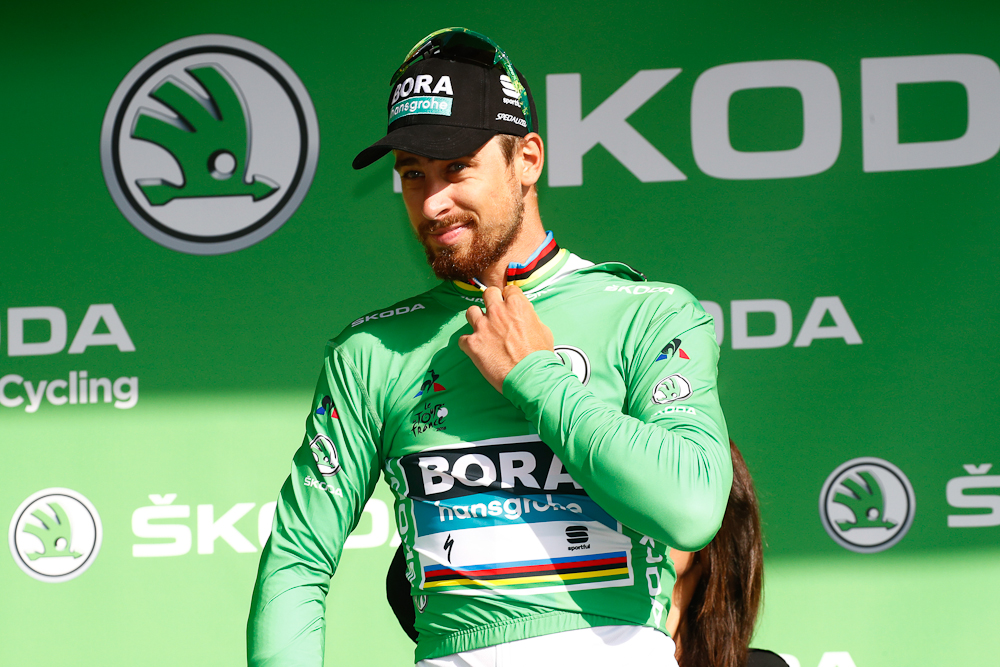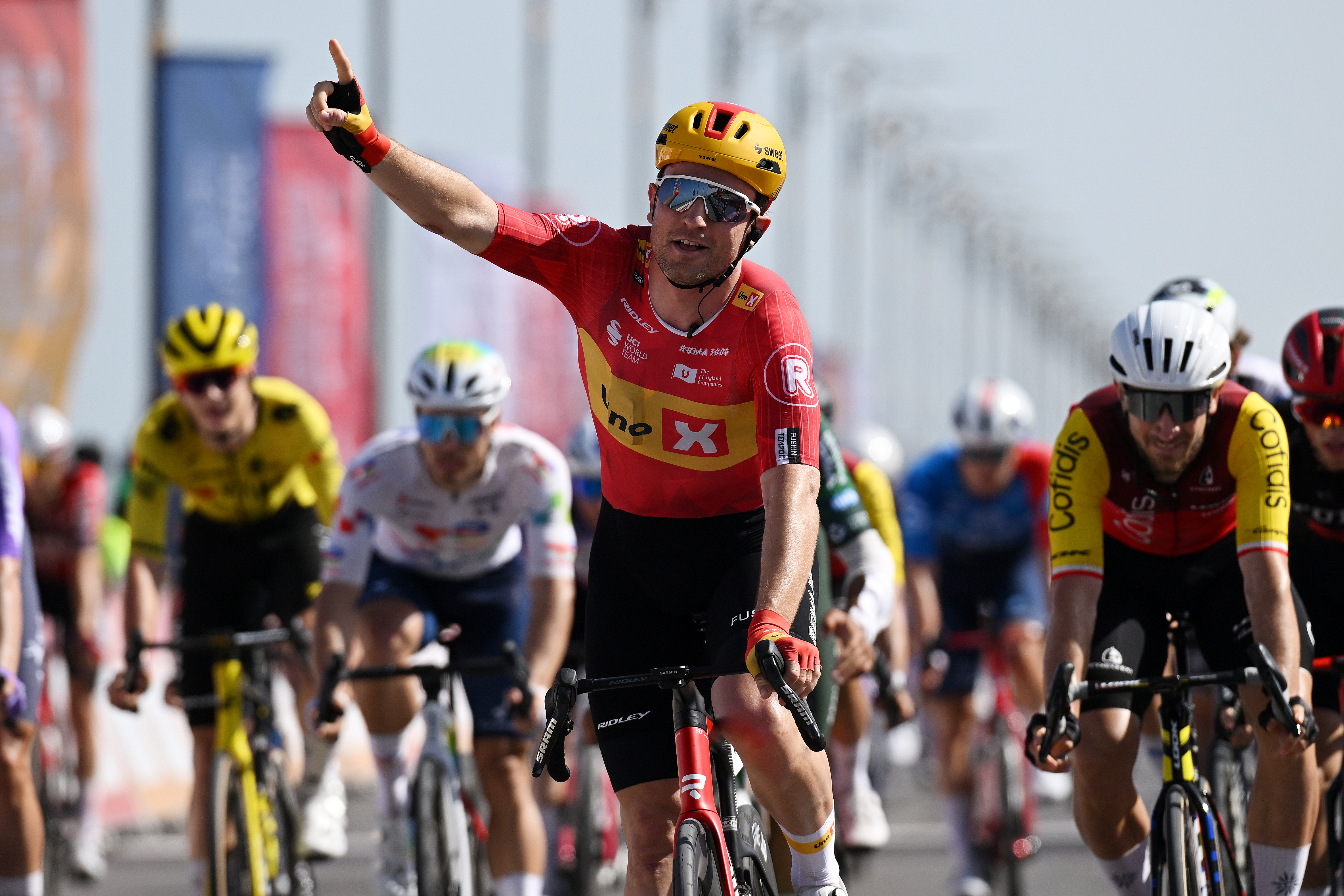Analysing the Tour de France teams – Part 2
A look at the ups and downs of team fortunes at La Grande Boucle
The latest race content, interviews, features, reviews and expert buying guides, direct to your inbox!
You are now subscribed
Your newsletter sign-up was successful
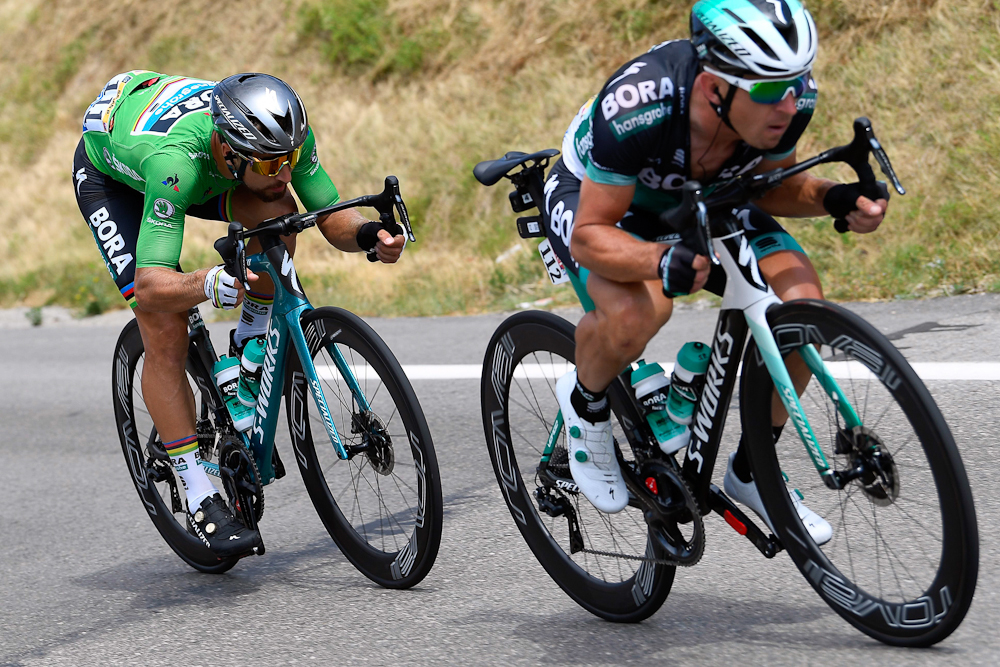
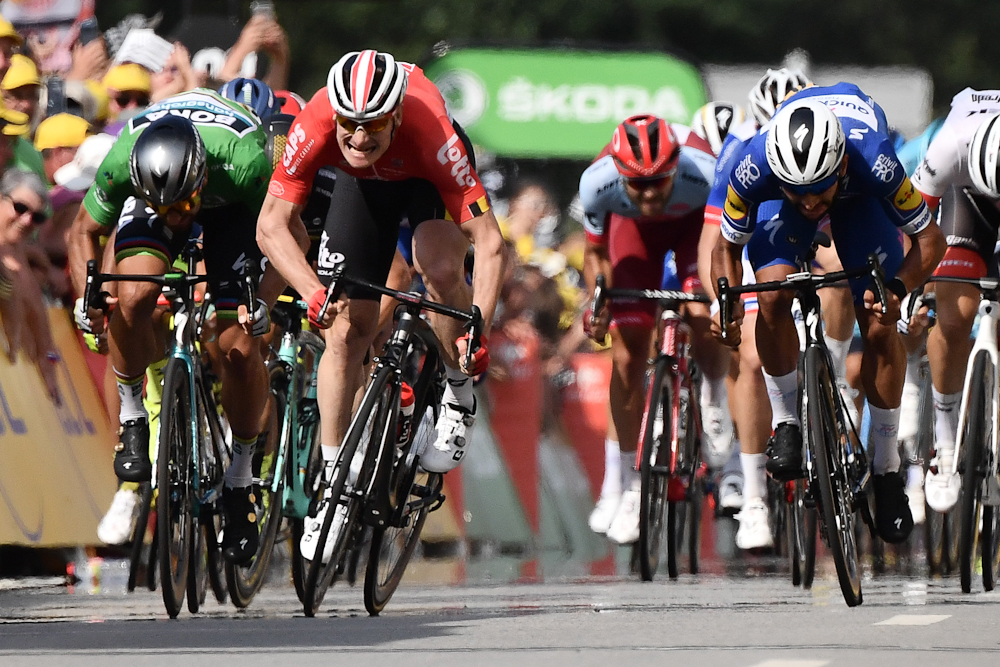
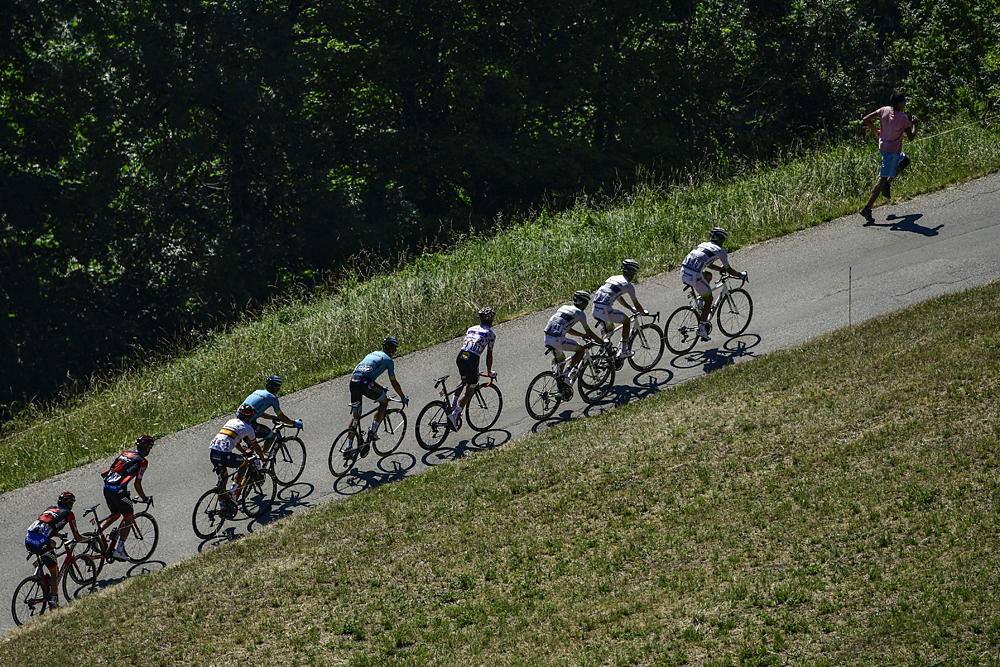
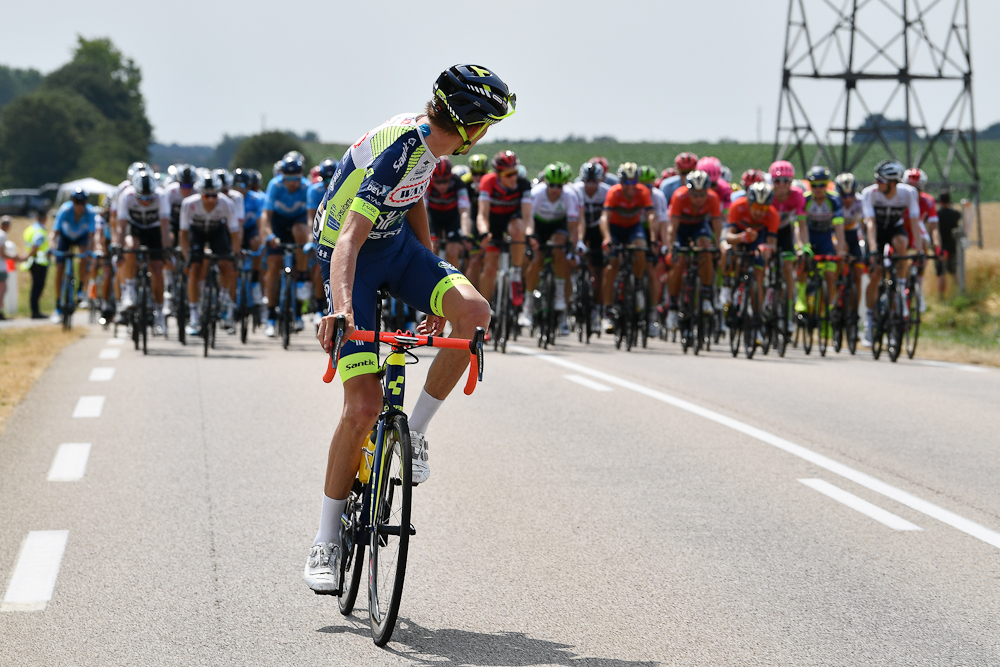
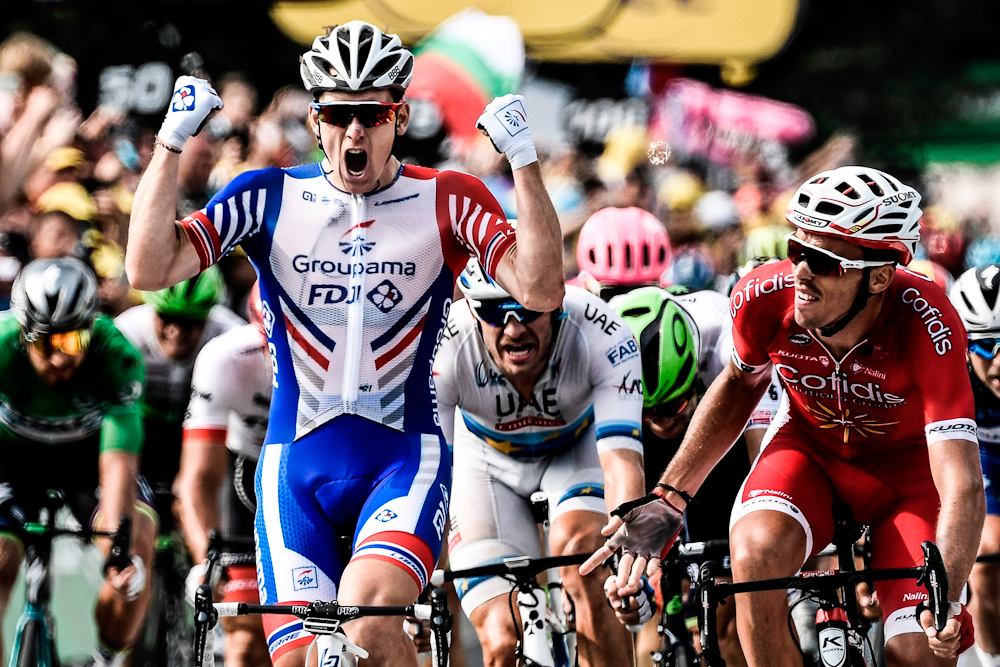
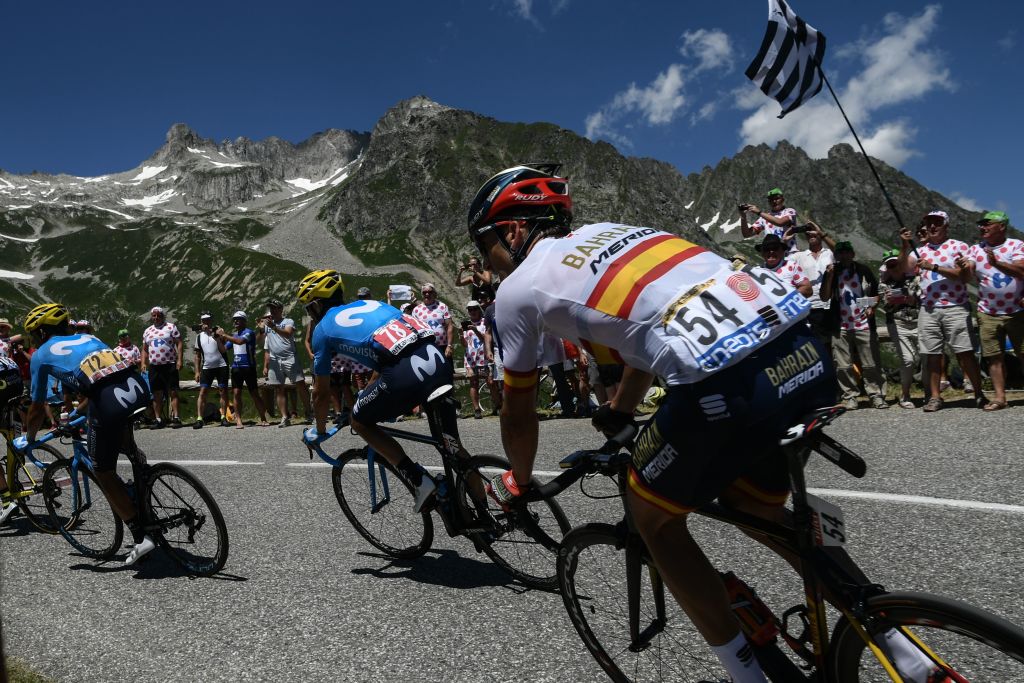
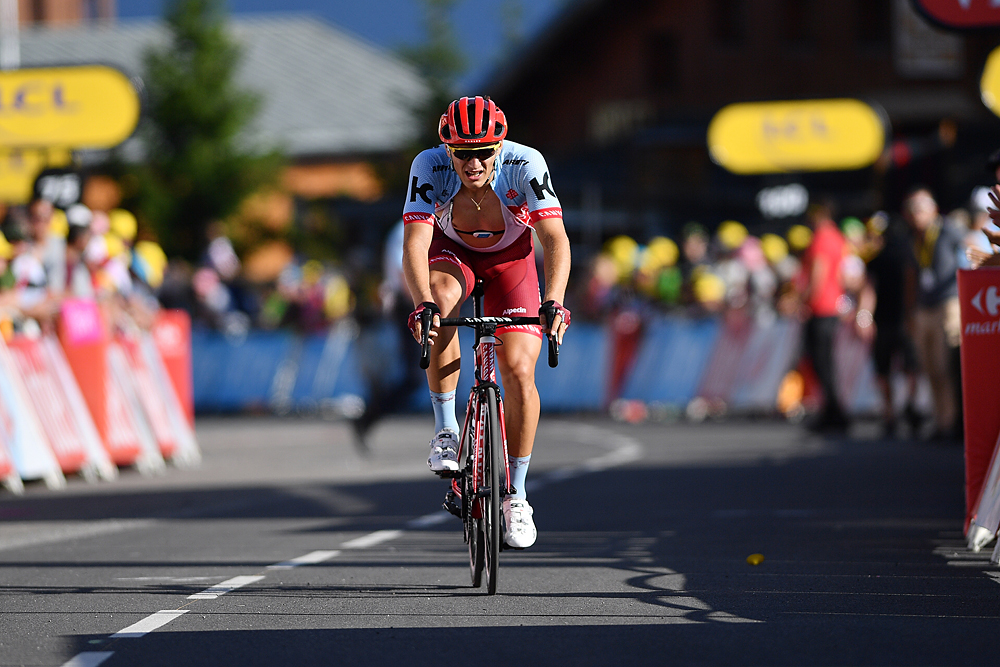
The ebb and flow of racing at the Tour de France each year means that some teams head home from Paris thrilled with everything they've achieved, while others slope off with their metaphorical heads bowed, vowing – but, ultimately, only hoping – to do better the following year.
This is part 2 of Cyclingnews' round-up of the highlights and low points of each of the 22 teams that participated in this year's Tour.
Bahrain-Merida
Highlights: Once team leader Vincenzo Nibali crashed on the way to Alpe d'Huez and had to abandon the race, the fortunes for Bahrain-Merida fell into the capable hands of the Izagirre brothers, Ion and Gorka. The Spanish duo lit up the mountains in search of stage wins, falling just short but providing plenty of highlight reels.
Ion Izagirre was second to Julian Alaphlippe (Quick-Step Floors) on stage 10 to Le Grand-Bornand and again on stage 15 to Carcassonne behind Magnus Cort (Astana). Izagirre's older brother Gorka, meanwhile, finished second to Alaphilippe on stage 16 to Bagnères-de-Luchon.
Low points: Nibali looked fit, was well-prepared and on track to put in a serious run at a second yellow jersey when disaster struck on stage 12, on the way to Alpe d'Huez. The 2014 winner's handlebar snagged a spectator's camera strap and brought Nibali to the ground about 5km from the summit as he rode with the GC group. He remounted with the help of fans and finished the stage seventh just 13 seconds behind winner Geraint Thomas (Team Sky), but he was later diagnosed with a fractured vertebra and did not start the next day.
Cofidis, Solutions Crédits
Highlights: The French Pro Continental team Cofidis, Solutions Crédits made a controversial decision to leave sprinter Nacer Bouhanni at home, putting the pressure to perform on another French fastman in Christophe Laporte. The 25-year-old nearly delivered the goods on stage 18, too, but he was beaten to the line by compatriot Arnaud Démare (Groupama-FDJ). Prior to stage 18, Laporte cracked the top 10 with fifth-place finishes on stages 1, 7 and 21.
Low point: The highs and lows of cycling often come in close succession. On the day Laporte nailed the team's best result of the Tour, he also revealed the most frustration. At the finish line Laporte showed his anger at Démare's apparent deviation from his line, but the deed was done and the results stood.
The latest race content, interviews, features, reviews and expert buying guides, direct to your inbox!
Fortuneo-Samsic
Highlights: With new sponsors in hand and a roster led by Warren Barguil, double stage winner in 2017 and winner of the polka-dot jersey, Fortuneo-Samsic had high hopes for the 2018 race. Barguil didn't pan out this year, finishing a distant second to Julian Alaphilippe in the mountains competition and failing to win a stage, but the team started on a high note when former U23 road champion Kévin Ledanois infiltrated the breakaway on stage 1 to Fontenay-le-Comte and came away with the first polka-dot jersey of the race.
Low points: Warren Barguil said before the race started that he hoped to lose time in the early going so he wouldn't be a threat to breakaways. That plan worked out well. By the end of the first climbing test during stage 6 on the Mur de Bretagne, Barguil was 24th overall, almost two minutes behind overall leader Greg Van Avermaet (BMC Racing). Barguil's plan continued to work until he was 11:50 in arrears by the time Julian Alaphilippe took his first stage win and the polka-dot jersey in Le Grand-Bornand, where Barguil finished 47th. Unfortunately, Barguil's stage win never materialised. In fact, he never cracked the top 10. His run at defending the 2017 polka-dot jersey also fell short of Alaphlippe by 79 points.
Groupama-FDJ
Highlights: Arnaud Démare's stage 18 win in Pau in front of French rival Christophe Laporte was the biggest highlight for Groupama-FDJ, as Démare took his second-ever Tour stage win after getting his first last year. The win was especially timely, as it came the day after sprint rival André Greipel (Lotto Soudal) implied on Twitter that Démare got assistance from a team car to make it over the mountains. Greipel eventually retracted the accusation, and Démare got sweet revenge in Pau, while Greipel was watching at home after abandoning in the Alps. Démare also grabbed three third-place finishes, a fourth and a fifth.
Frenchman David Gaudu scored the team's only other top-10 finish, coming in ninth during stage 10 to Le Grand-Bornand.
Low points: For a team that was basically built around their sprinter, having Démare's first win come on stage 18 was not ideal, but the low point for the Tour probably came with Greipel's accusation, which built on persistent rumours that Démare used the team car to get back into contention on climbs when he won Milan-San Remo in 2016. In the end, however, Greipel apologised and Démare had the last laugh.
EF Education First-Drapac
Highlights: When one of your riders finishing the Tour de France in last place is considered the best thing that happened, you can safely say that you didn't have the best July. EF Education First-Drapac arrived at the Tour boasting last year's runner-up in Rigoberto Urán, but a series of unfortunate events – many of them befalling the team in the opening week – meant that the story focused on young Lawson Craddock's battle to complete the race after he'd crashed and fractured his shoulder blade on stage 1. But it was a good-news story in that the American pledged $100 of his own hard-earned cash for each stage of the race that he finished, in order to fund the refurbishment of his childhood velodrome in Houston after it had suffered the ill-effects of 2017's Hurricane Harvey. Craddock's struggle netted some serious interest, and he was close to having raised $200K when the race – and he – reached Paris.
Low points: There were far more low points than highlights for the American squad this year, unfortunately. The biggest, of course, was Urán's failure to live up to his billing. The Colombian – hoping to improve upon, or at the very least match, his second place of 12 months ago – crashed heavily on the cobbled stage 9 to Roubaix, and never recovered. He lost over 26 minutes to stage winner Geraint Thomas on stage 11 to La Rosière, and quit the race the next day. While Craddock suffered through the race, Taylor Phinney used up the last of the team's bandages when he hit a tree on stage 19, fracturing his nose. Like Craddock, the American struggled bravely on to Paris, but the team will be left hoping their luck changes for next year's race.
Bora-Hansgrohe
Highlights: Peter Sagan tends to be the highlight of virtually any race he enters these days - win or lose - and this year's Tour was no exception; three stage wins and a sixth green jersey made it a hugely successful race both for Bora-Hansgrohe and the world champion personally. It cemented – as if any more cement were needed – Sagan's status as the most exciting rider of his generation and, after his 2017 disqualification from the Tour as early as stage 4 for having been deemed to have caused the crash that took out Mark Cavendish, it was retribution of sorts for having been unable to defend his green jersey last year.
Low points: If there's one downside to Sagan's phenomenal success, it's that he tends to have to carry the entire team. Bora-Hansgrohe went into the race with the ambitions to take stage wins and the green jersey via Sagan, and the team worked hard to achieve that, but it was also hoped that their climber Rafal Majka would be able to finish well up on the GC. But after losing more than 11 minutes to winner Geraint Thomas on stage 11 to La Rosière, and then another 15 minutes to Thomas on the road to Alpe d'Huez the next day, it was clear that this wasn't the two-time polka-dot-jersey winner's year. Majka seemed to finally find his wings on stage 19 – the race's final stage in the mountains – when he finished fifth, equalling his best finish earlier in the race when he'd shown so much promise on stage 6 to the Mûr-de-Bretagne. But it really was too little, too late; he'll be back for another crack at the GC next year, no doubt.
Dimension Data
Highlights: Dimension Data had very little to celebrate in Paris. While they'd hoped that Mark Cavendish might have been on form to win in the bunch sprints, Edvald Boasson Hagen was left to carry the flag after Cavendish's early exit after stage 11. While the Norwegian took fourth place in the sprints on both stage 18 and the final stage to Paris, and Belgian Serge Pauwels tried for stage wins from various breakaways, finishing fifth on stage 10 to Le Grand-Bornand, that was as good as it got for the South African team.
Low points: With no stage wins at the Tour, Dimension Data's victory count this season still numbers just five. Quick-Step Floors, by comparison, have 51 season wins at the time of writing, with four of those having come at the Tour de France alone. With Cavendish's powers seemingly waning, it's hard to see how Dimension Data are going to rediscover their mojo again any time soon. One highlight of the African team's season, however, has been the emergence of Ben O'Connor, who scored one of those five team wins with a stage at the Tour of the Alps in April, and went on to overshadow the underperforming Louis Meintjes at the Giro d'Italia. Dimension Data could have done a lot worse than to have brought the young Australian climber along for at least a taste of the Tour before exhaustion no doubt took hold.
Direct Energie
Highlights: As a French Professional Continental team, just being on the start line at the Tour de France has always been a highlight for Direct Energie. The team received the highest amount of applause during the team presentation at the Grand Départ in the Vendée region. Sylvain Chavanel did not disappoint after a trademark solo breakaway for 132km during stage 2, and although he was caught by the sprint teams in La Roche-sur-Yon, his efforts earned him the Zwift Rider of the Day. The public gave him a warm send-off along the Champs-Élysées as congratulatory cheers broke out to celebrate his record-breaking 18th and final participation at the Tour de France.
Low points: As anticipated, the team were involved in the breakaways on nearly every stage of this Tour de France, with Chavanel, Jérôme Cousin, Guillaume Van Keirsbulck, Lilian Calmejane, Damien Gaudin, Fabien Grellier and Thomas Boudat. They managed to fight their way into the top 10 with Boudat on stage 8 and Calmejane on stages 10, 14 and 15, while Rein Taaramae secured the team's only podium position in third place in Le Grand-Bornand. While these would certainly be considered highlights for the team, a low point would be that they failed to secure a stage win.
Katusha-Alpecin
Highlights: Ilnur Zakarin came into the Tour de France as Katusha-Alpecin's best hope for a top place in the overall classification. Things didn't start well for the Russian climber after a crash, and then a lack of communication amongst the team, which cost him 59 seconds on stage 4. But he hovered the top 10 overall, with help from American Ian Boswell, for much of the race, and despite losing half his team to crashes and time cuts, ended up in ninth place overall.
Low points: If there were ever a case of under-performance it was from Katusha-Alpecin and the team's manager José Azevedo admitted that point himself in an interview with Cyclingnews during the last week of the Tour de France. By the time the race exited the Alps, Katusha-Alpecin had already lost half their team. Robert Kiserlovski crashed on stage 5 and broke his collarbone. Tony Martin crashed with Dan Martin (UAE Team Emirates) on stage 8 and fractured several vertebrae. Marcel Kittel, along with several other sprinters, didn't make the time-cut into La Rosière on stage 11, and even though Rick Zabel missed that cut but was reinstated, he abandoned the next day. With four riders remaining, the team secured no stage wins and even though Zakarin's ninth place overall is respectable, it was less than what they were aiming for at this year's Tour de France.
Wanty-Groupe Gobert
Highlights: Wanty-Groupe Gobert made the most of their wildcard start at this year's Tour de France. The team might not have won a stage but they featured inside the top 10 in nine stages during the three-week race, while Dion Smith wore the polka-dot jersey of best climber for three days and the team featured riders in the daily breakaways. Guillaume Van Keirsbulck attempted a solo win into Sarzeau on stage 4, but was ultimately reeled in by the sprint teams in the closing kilometres. Most notably, Yoann Offredo went on a one-man breakaway for more than 100km during stage 11, and although he didn't win the stage, he didn't walk away with nothing, securing ample TV time for his team and the Zwift Rider of the Day.
Low points: The team had high hopes for Guillaume Martin after he finished 23rd on his debut at last year's Tour de France, where he took third in the mountain stage to Station des Rousses. The Frenchman's chances at a top place in this year's Tour were dashed early on when he lost time due to a crash in stage 1 and he eventually finished 21st overall.
Lotto Soudal
Highlights: Andre Greipel and Thomas De Gendt were set to lead the Lotto Soudal team to success at this year's Tour de France. The team was dedicated to winning stages, and although that did not materialise, Greipel came close with a third place in Sarzeau and De Gendt held up his end of the bargain with his trademark breakaway efforts, particularly in stage 13 to Valence, although none were fruitful in victory.
Low points: Stage 4 was a low point for Tiesj Benoot, who was caught up in a crash, along with his teammate Tomasz Marczynski. Both finished the stage, but Benoot's face was covered in blood as he suffered the worse of the fall with a second degree dislocation to his shoulder, bruises to his ribs and back, and abrasions over much of his body. He needed stitches to close the wounds on his eye brow and head. He was forced to abandon. Bad luck got worse for the team as Jens Keukeleire crashed and abandoned after stage 9.
Greipel's woes continued with a relegation for head-butting during stage 8 before finishing outside of the time limit on stage 12 to Alpe d'Huez, along with lead-out man Marel Sieberg, while Jelle Vanendert didn't finish stage 19. Even from home, Greipel's low points turned into low blows against fellow sprinter Arnaud Démare (Groupama-FDJ), insinuating in a post on Twitter that the Frenchman had accepted a tow in order to finish inside the time limit on stage 17 to Col du Portet. Greipel later deleted the post from his Twitter account and publicly apologized, which in the end, could be considered a high point.
Lotto Soudal manager Marc Sergeant summed up his team's experience at the Tour de France best when he wrote on Twitter: "On the one hand there are the five riders who abandoned the race, but on the other hand there’s the fact that we were rarely in the running for a stage win."
RUNNING WITH WOLVES from Cyclingnews Films on Vimeo.
